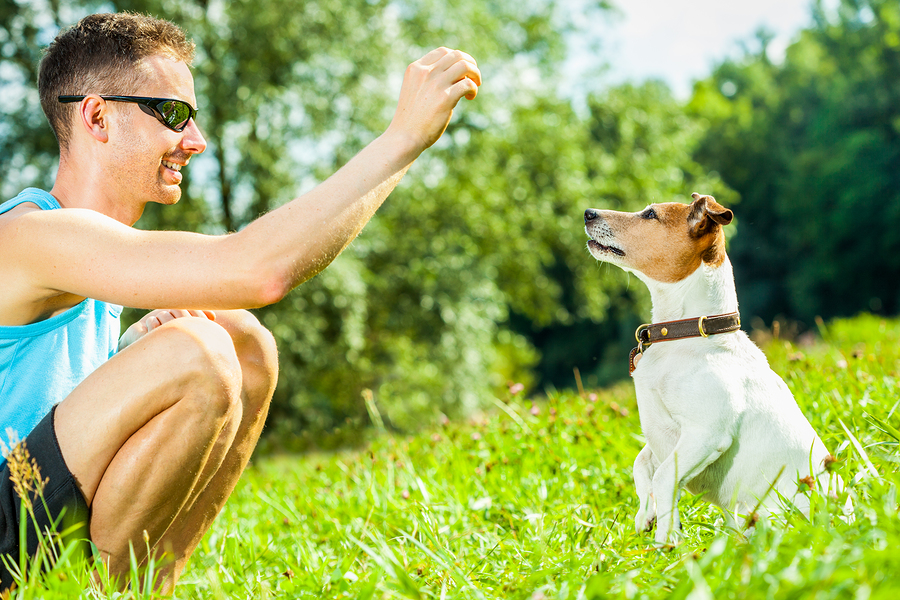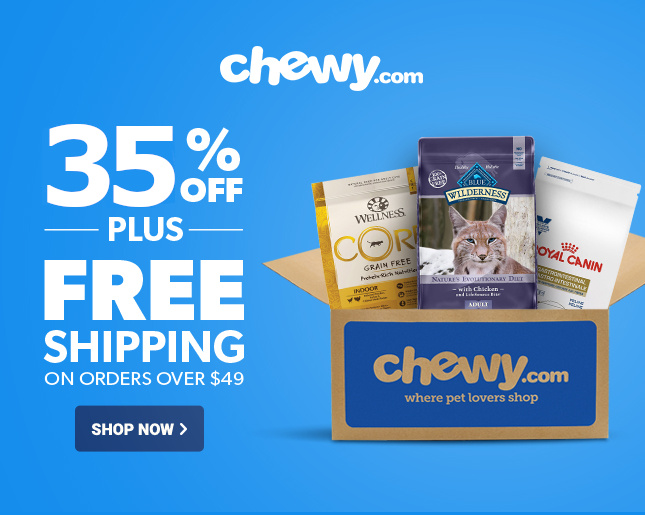
This post may contain affiliate links. We are compensated for referring customers to our affiliate partners.
There are tons of treat options available for dogs. Treats come in a variety of flavors, textures, and offer some pretty impressive health claims. With so many choices it’s hard to know what kind of treats to get for your dog. Here is a guide to the different variety of dog treats and how to pick the best one to support your dog’s nutrition.
Types Of Commercial Dog Treats
When you go to your local pet supply store or even walk down the pet food aisle at the grocery store, you will see a huge variety of commercial dog treats. Here is a rundown of all the different types of commercially available dog treats:
- Biscuits: Dog biscuits are the oldest and most standard commercially available dog treat. They come in a wide variety of shapes and sizes, flavors, and colors. Biscuit treats are good option because they help clean your dog’s teeth and many contain nutrients and digestive aids to support dog nutrition.
- Soft Treats: Soft treats are chewy and soft. They tend to have a better flavor than biscuits, so they are best used a reward for good behavior and during training. Like biscuits, some soft treats are also made with added vitamins and minerals to support dog nutrition.
- Training Treats: Training treats are designed specifically to give as a reward during the obedience training process. They are very compact so you can reward your dog over and over again without worrying about weight gain. They are also great to keep in your pocket for portable training purposes.
- Jerky Treats: Jerky treats are made from dried cuts of meat. They help supplement your dog’s protein needs, aid in digestion, and can offer hours of entertainment. Jerky treats are also a great tasting option so they are a perfect reward for good behavior.
- Rawhide: Rawhide treats are made from the hide of animals and come in a variety of styles and flavors. Since they require a lot of chewing, rawhide treats are great for cleaning teeth, reducing stress and anxiety, and giving your dog something entertaining to do.
- Pig Ears: Pig ears are just dried pig ears. Like rawhide treats, dried pig ears require hours of chewing so they help support dental health, reduce stress and anxiety, and help give your dog something fun to do for hours.
- Bones: Animal bones can also be a great treat for dogs. They provide lots of vital mineral nutrients like calcium and magnesium and offer hours of entertainment. However, dog bones have some issues because they can break and cut throats, cause choking, and chip teeth. Usually, commercially produced bones are designed for safety but it is still best to monitor your dog when you give them a bone.
- Dental Chews: Dental chews are designed to clean teeth and freshen breath. Dental chews are a great option to help support your dog’s overall dental health and hygiene. They also offer a lot of chewing so they can reduce stress and give your dog hours of entertainment.
- Vitamin Supplements: Vitamin supplement treats are great for helping support your dog’s nutrition. They come in a variety of nutrients from multi-vitamins to omega-3 fatty acids to probiotics. These are a great treat option to both reward your dog and support their health.
Dog Treat Ingredients To Avoid
Once you have decided the type of treat you want to feed your dog, you need to read the ingredients panel to make sure you are buying a high quality food. There are some ingredients that should always avoid giving your dog like chemical additives including:
- Artificial Preservatives: Avoid any chemical preservatives like BHA/BHT, TBQH, potassium sorbate, sodium nitrate, calcium propionate, and ethoxyquin. Instead look for treats that use natural preservation methods like air-drying, freeze-drying, or natural preservatives like rosemary oil, vitamin C, or vitamin E.
- Chemical Humectants: Avoid chemical humectants like propylene glycol, hexylene glycol, butylene glycol, glyceryl triacetate, and sugar alcohols like glycerol, sorbitol, and xylitol. These preservatives can be very unhealthy for your dog.
- Artificial Colors: Artificial colors like dyes like red 40, yellow 10, or blue 1 are unnecessary additives and can be damaging to your dog’s health.
- Artificial Flavors: Be wary of anything that says “natural flavors.” Natural flavors are chemicals designed to mimic the natural flavors of food. Instead look for whole foods ingredients, they will provide plenty of truly natural flavor for your dog.
- Fillers: Fillers like cottonseed hulls, corn husks, rice bran, and modified corn starch offer no nutritional value for your dog and can actually upset their digestion.
You also want to make sure that the treat doesn’t contain added sugars or too much sodium which can be detrimental to the overall health of your dog. Also, watch the fat content. Too much fat can lead to dog obesity if you are not careful.
Human Food Treats
You can also give your dog human food treats. There are tons of great human foods that can support the whole health and nutrition of your pet. However, some human foods can trigger allergies, intolerances, or contain ingredients that can be damaging to a dog’s health. So if you want to feed your dog human food as a treat, take a minute to read Dog Food Insider’s guide to people food here to make sure you feed your dog the right people foods.
Homemade Dog Treats
Another treat option is to make homemade dog treats. There are tons of dog treat recipes online that can help you make treats at home. Making homemade dog treats cannot only ensure you are giving your dog a healthy treat but can save you money and is a super fun activity. To get you started check out some of the homemade dog treat recipe round ups we’ve done at Dog Food Insider:
Your dog deserves a treat after being a good dog. With some many treat options it can be difficult to decide what to give them. However, if you treat based on their needs, avoid unhealthy ingredients, and know what kinds of people foods you can give them, you’ll be able to confidently give your dog healthy treats.
